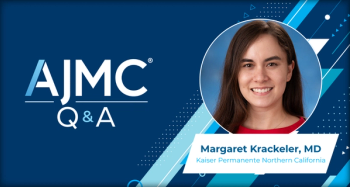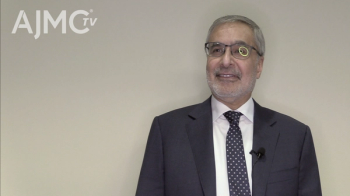
Dr Julia Adler-Milstein Discusses Opportunities for Health IT
Julia Adler-Milstein, PhD, explains the importance of technology as a supporting factor in healthcare delivery, saying that it will enable patients to access their data and become more involved in their healthcare.
Julia Adler-Milstein, PhD, explains the importance of technology as a supporting factor in healthcare delivery, saying that it will enable patients to access their data and become more involved in their healthcare.
Transcript (slightly modified)
What did your panel at the Academy Health National Health Policy Conference 2016 discuss as being the biggest opportunities that digital health and health IT present for healthcare delivery?
I mean, the sky’s the limit. What’s limiting us right now is giving patients good access to their data that they can then use to be engaged in however they want to be engaged. I think another key issue that came up on the panel was that it’s not going to be the same for every patient. Some patients maybe want a more paternalistic “Doc, tell me what to do,” and there are going to be other patients that want to be at the center of that decision making and use online decision tools.
And so then I think what was exciting was hearing about what was possible, but then also trying to figure out how do we move the healthcare delivery system and sort all of the players that are going to be part of this in order to offer patients what they want. So we did spend a lot of time just talking about getting patients access to their data.
But then the second part of the conversation was: how do we take that data and use it to engage patients? I think there’s a huge amount of opportunity for the healthcare delivery system to do that, and I think that my concern is that it’s not really a challenge that they wanted to take on.
Patient engagement has not been a focus of our healthcare delivery system. I think what we’re seeing is that people are frustrated with how little that’s happened, and what we’re seeing is that there’s an assumption that you need to work around the traditional healthcare system and get patients access to their own data, and give them the ability to manage and make decisions around and outside of the healthcare system. But I think that’s risky because at some point you’ll need to plug back in to the healthcare system. How do you imagine a world of patient engagement in which they’re doing it outside of doctors and hospitals and other settings where they need that care?
I think it’s both an exciting time, in which there’s a lot of opportunity of change, but also a time when we really need to think carefully about who are going to be the actors that are leading this, who’s going to get pulled along, and who might get left behind. And then, at the end of this, do we really come out ahead? Do patients feel like they’re getting the care and support they need?
Using tools and technology is a support to that: technology is not going to be the driving factor, it’s going to be the supporting factor. And so what we have to think about is: what are the models in which we support patients? And then think about what’s the role of technology.
Newsletter
Stay ahead of policy, cost, and value—subscribe to AJMC for expert insights at the intersection of clinical care and health economics.
















